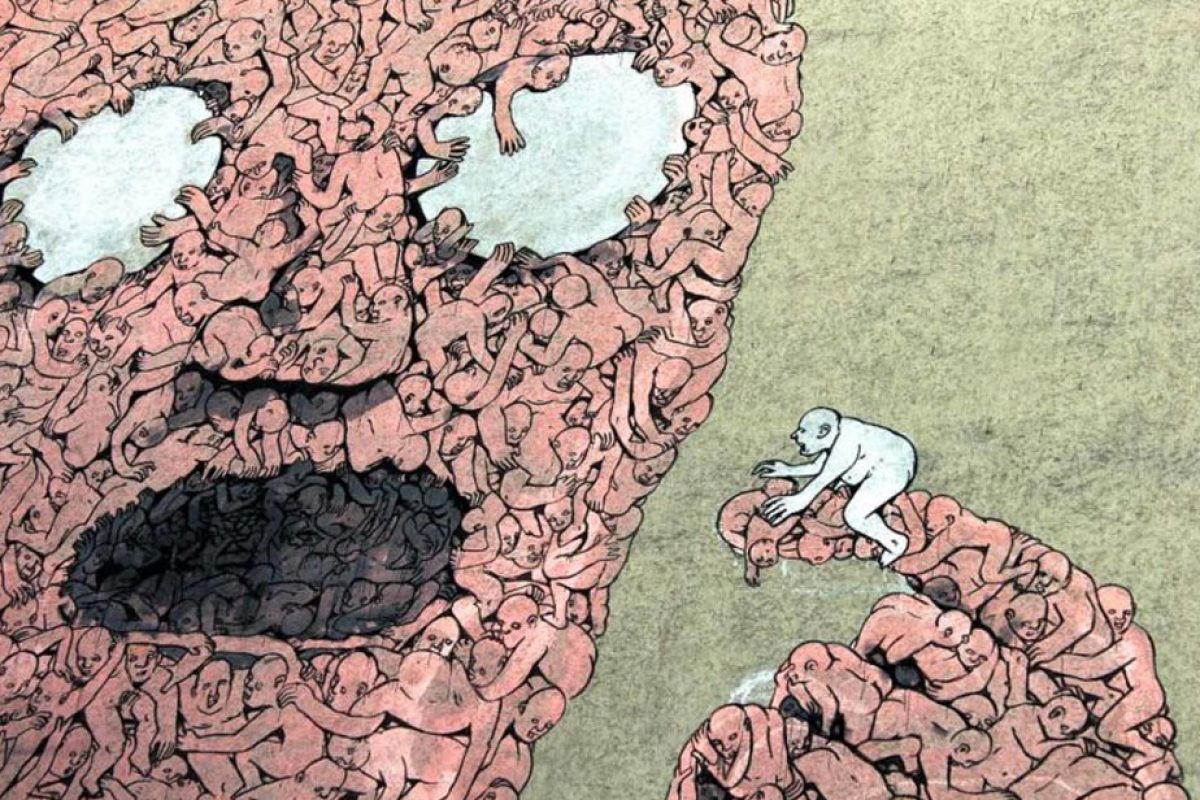The power of Babylon is the power to exclude us from an illusory kind of happiness, whilst creating both the impression that this happiness is very real, and that it is the only kind of happiness which it is possible to get. Crucially, there is also the suggestion that we can obtain this happiness, this fulfilment, if we strive hard enough within the framework that is provided for us. The reward is there, if we ‘play the game correctly’. These conditions are all that are needed for the Babylon to thrive and grow strong.
The rules of the game are at the same time both understood by all, and completely unacknowledged. The rules are that if we do succeed within the terms of the game, and enter into the ranks of the successful, then we are to maintain the illusion that the type of happiness which we are now in receipt of is in fact completely genuine and not fake at all. We are not only required to lie to everyone else that what we have achieved is worth achieving, we are also required to lie to ourselves. In this way, there is no chance of disillusionment spreading, disillusionment that would threaten the power of Babylon. In this way, everyone will continue to think that the illusion is real, that the prize is worth chasing. In this way, the show is guaranteed to go on…
There are consequences to this conspiracy: the consequences are that if any individual should lose the ability either to successfully lie to himself, or herself, (and thus lie to the world) that they are indeed happy and fulfilled, then such individuals will be treated as if they have some sort of sickness, a sickness that needs treating in order that they might rejoin the rest of us. Their profound unhappiness – in whatever form it might take – is a profound threat to the whole system, and for this reason it is essential that the experience of the sufferer not be accepted on its own terms, but rather that it should be interpreted in the terms of the system. The error is thus not located in the system but in the individual – the individual is doubted rather than the system. No one ever doubts the system because it is simply too big to be doubted.
This is called ‘the control of meaning’ – the meaning of our unhappiness is decided by the experts appointed by the system. Not only is profound (i.e. persistent and non-trivial) unhappiness a threat to the system, it is also of course a threat to each one of us just so long as we are seeing things the way the system has conditioned us to see them. The consequence of this is when we see profound unhappiness in those around us we have to re-interpret their experience in our own terms. We have to dismiss their experience by saying that it is a ‘sickness’ like malaria, tuberculosis or swine flu.
Inasmuch as we are in denial of our own true feelings, we are bound to turn our backs on those who display what we hide within ourselves.
Inasmuch as we are keeping up the pretence that false (or ‘theatrical’) happiness is real, we are bound to pretend that genuine unhappiness is false. This means that we are turning our backs on ourselves! This the inevitable consequence of the game that we all play, but say we do not play.
Image – wallpaper-house.com





